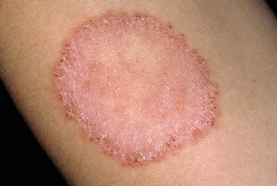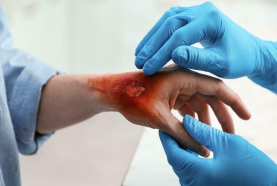What is Psoriasis
Psoriasis is a chronic autoimmune skin condition that speeds up the growth cycle of skin cells.
It results in thick, scaly patches of skin that can appear anywhere on the body.
Common Clinical Presentation
-
Red patches of skin covered with thick, silvery scales
-
Dry, cracked skin that may bleed
-
Itching, burning, or soreness in the affected areas
-
Thickened, pitted, or ridged nails
-
Swollen and stiff joints (in cases of psoriatic arthritis)
Topical Treatments
Steroid creams, vitamin D analogues, or retinoids to reduce inflammation and slow skin cell growth.
Phototherapy
Exposure to ultraviolet (UV) light under medical supervision to reduce symptoms.
Systemic Medications
Oral or injected medications (e.g., methotrexate, cyclosporine, biologics) for severe cases affecting large areas of skin or joints.
Moisturizers
Regular use of moisturizers to keep the skin hydrated and reduce itching and scaling.
Lifestyle Changes
Maintain a healthy diet, avoid triggers such as stress and smoking, and practice good skin care.
Avoid Triggers
Identify and avoid triggers that can cause flare-ups, such as stress, infections, or certain medications.
Healthy Lifestyle
Regular exercise, a balanced diet, and avoiding smoking and excessive alcohol can help manage symptoms.
Regular Check-ups
Regular visits to a healthcare provider to monitor the condition and adjust treatment as needed.
What You’ll Need
You should know
Psoriasis is a long-term condition that can be managed with proper treatment and lifestyle adjustments. If you experience symptoms, consult a healthcare provider for a personalized treatment plan.
Checkout Information
Get virtual care from a licensed clinician quickly —no appointment or insurance necessary.
One Time Purchase: $49.00
Answer a few health questions and our healthcare providers will review them within 2hrs with recommendations and prescription. Our consultation process is fast and straightforward.
Pick up any prescribed medication at a pharmacy of your choice.
Other Treatments

Anxiety
Mental health disorder causing excessive worry, nervousness, and fear.

Ringworm (Tinea)
Fungal infection causing a red, circular rash with clearer skin in the middle.

Minor Burns
Superficial skin injuries causing redness, pain, and swelling.
